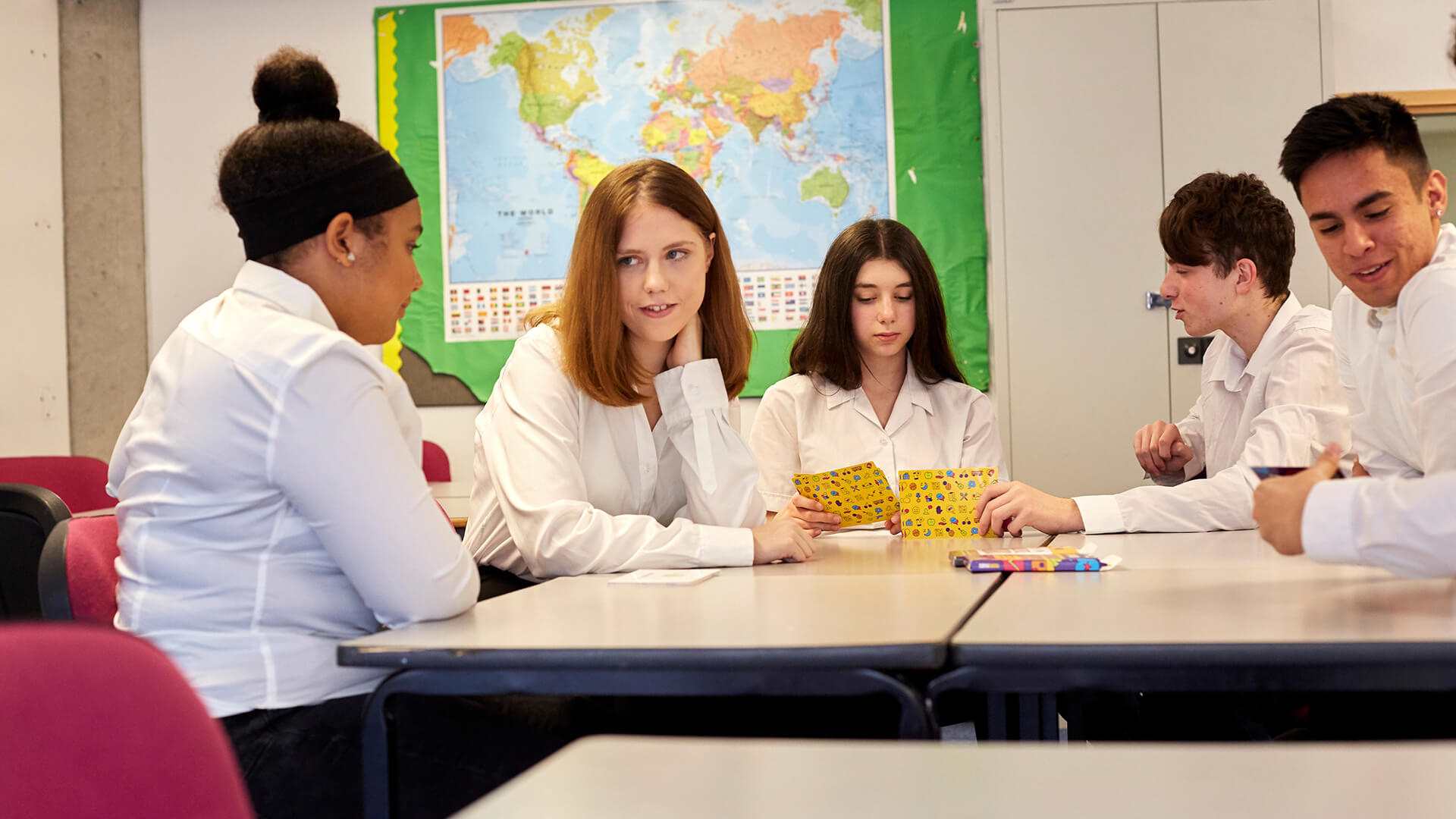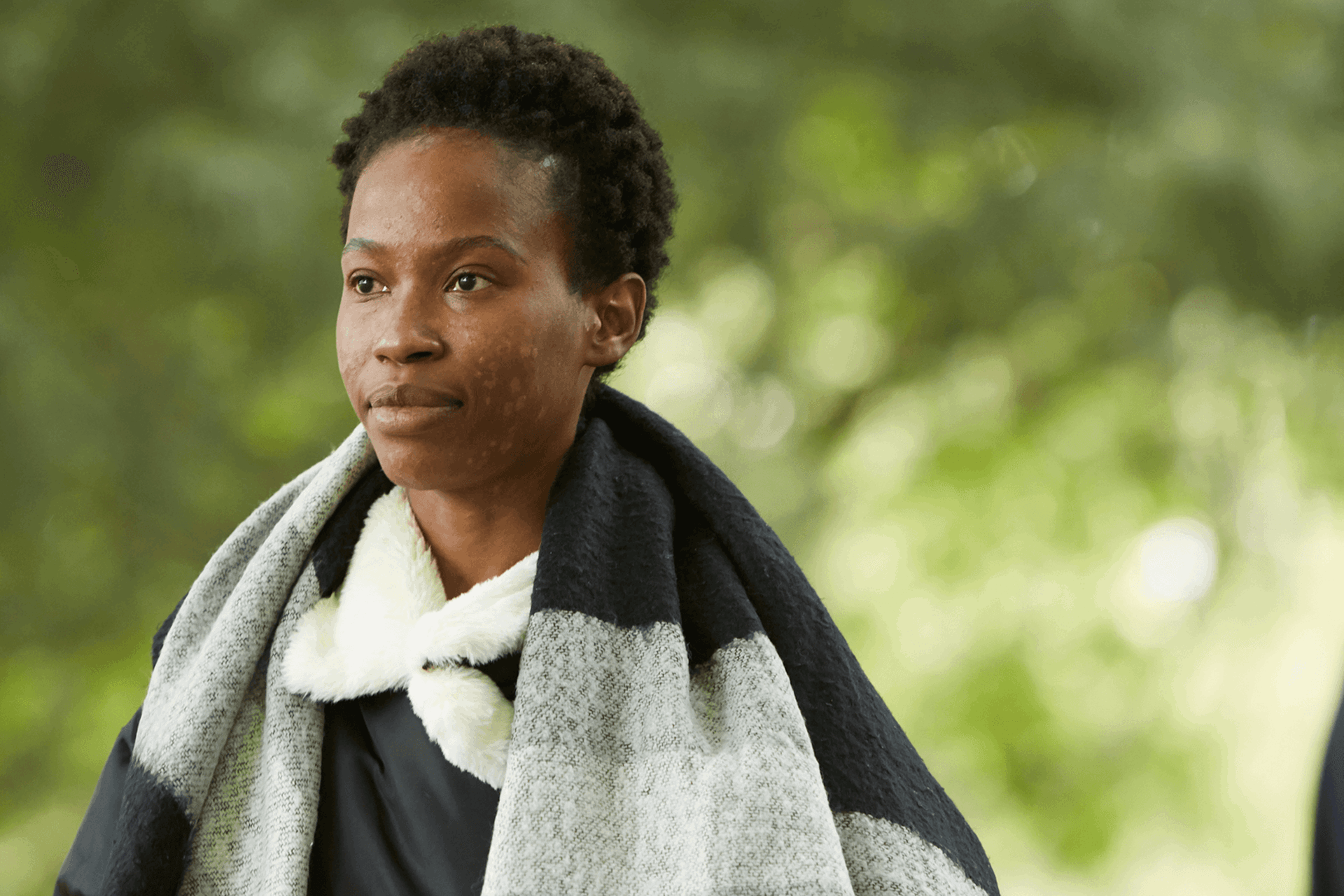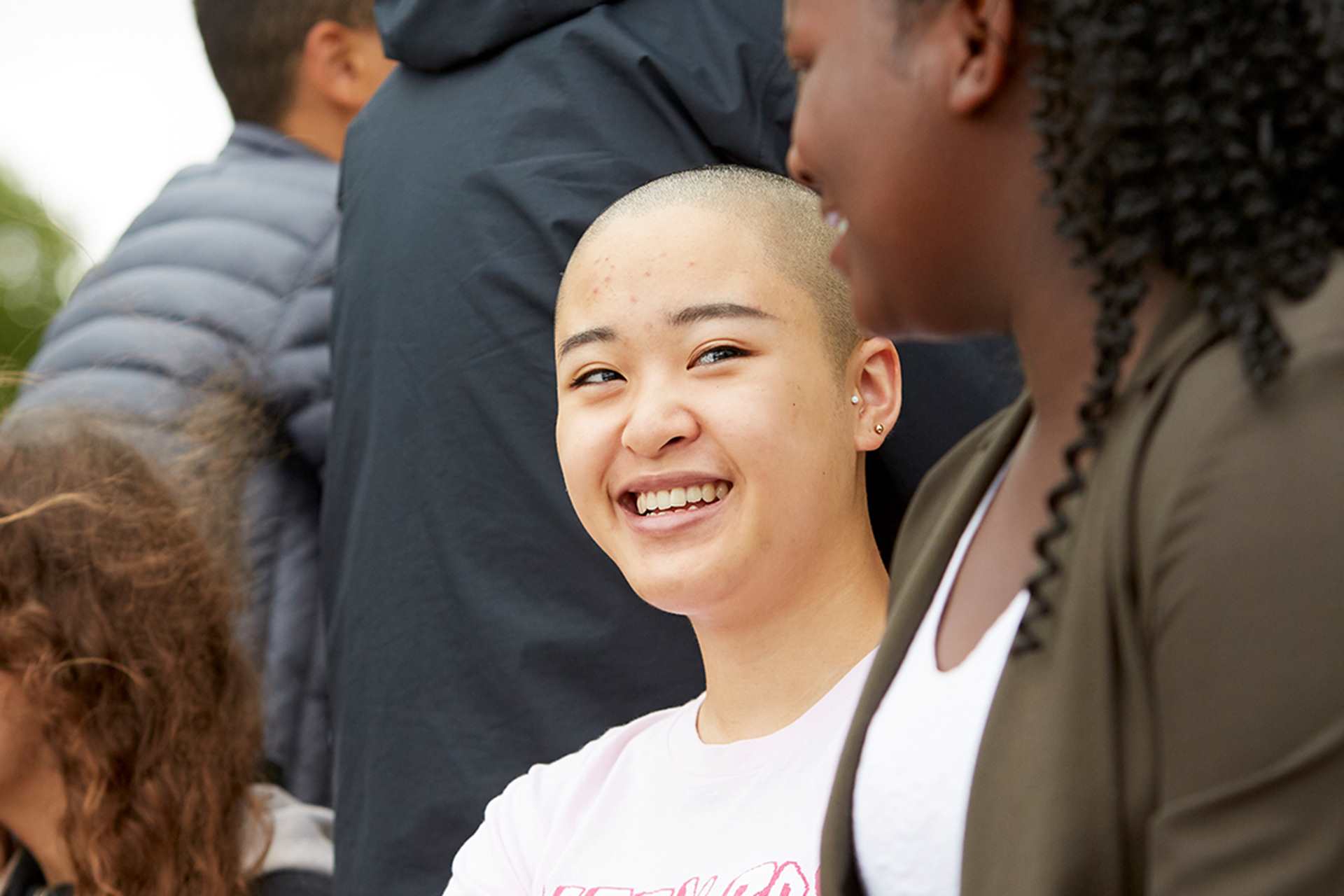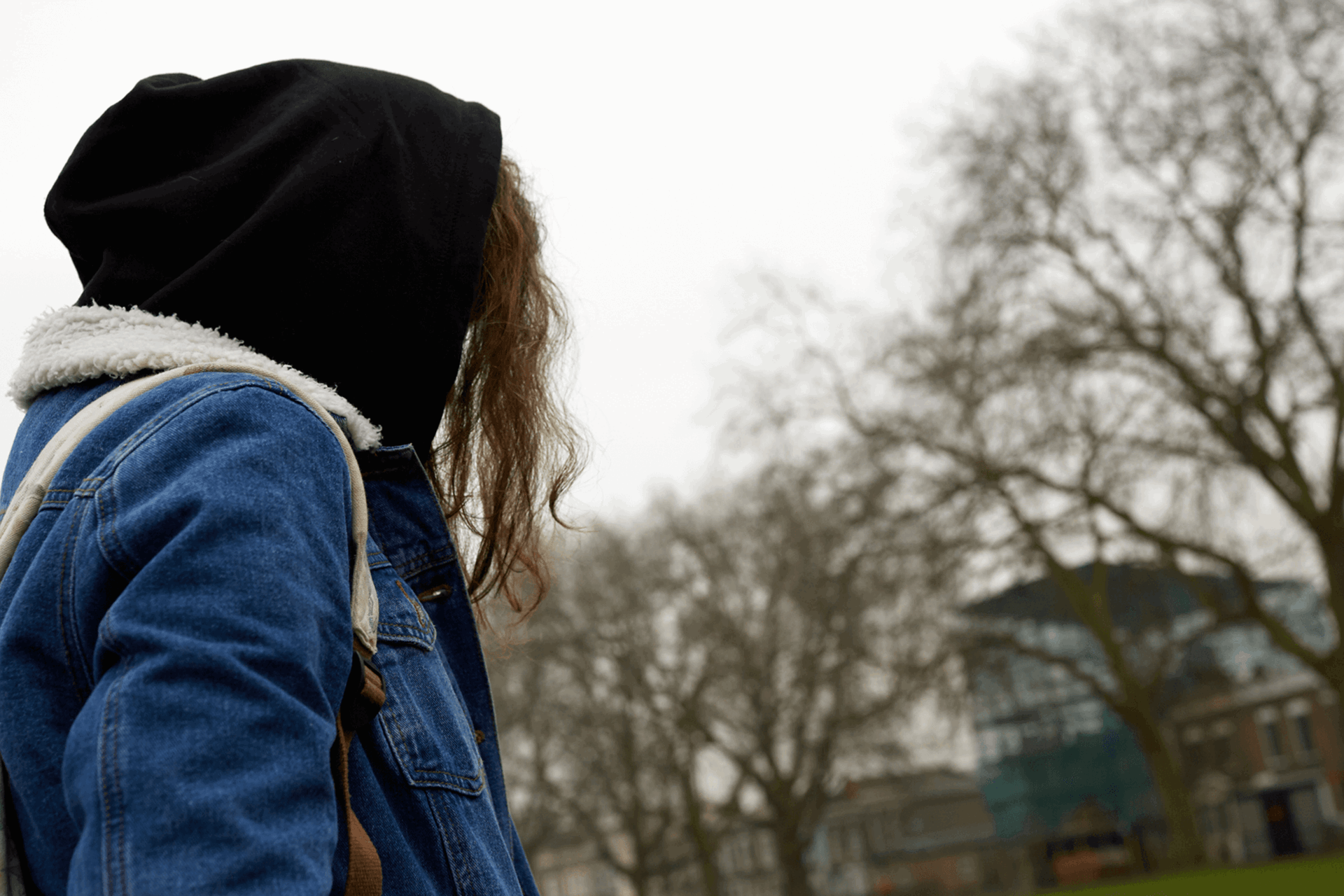Topics mentioned: schizophrenia, suicidal feelings, psychosis, medication, exam stress, inpatient care
About: Jess was diagnosed with schizophrenia aged 18. She describes how school supported her through exams while she was in hospital and what changes she'd like to see to help students struggling with mental health.
This blog contains references to suicide, being physically restrained and psychotic episodes. Please do not read on if you think the content may be triggering for you. If you are currently struggling with your mental health, please visit our find help page for information, advice and guidance on where to get support.
Psychosis is scary and can take so much from your life, but it is important to know that you are not alone and that there are always people who want to support you.
School and education have always been a very important part of my life. I was academic from a young age and always enjoyed furthering my education and learning.
However, this all became more complicated as I became very ill around the age of 13. I developed psychotic symptoms and was diagnosed with schizophrenia when I was 18.
I had passed my 11+ examination and joined a well-respected all-girl grammar school. It was a big change, from a small local primary school of about 120 to a secondary school of over 1,000. Nevertheless, I adapted to the new challenges and really enjoyed the school experience and the increasing independence that came with it.
Then things started to go downhill. I became more introverted, my grades started to slip. I was asked to speak to the school counsellor. What I told her concerned her so much that she referred me to Child and Adolescent Mental Health Services (CAMHS) straight away.
Deep down I think I knew that my schizophrenia would impact my academic learning. But it still hurt as I saw all my friends and family progress and succeed without me.
As the school years passed and I hurtled towards my GCSE examinations my illness became more complex and more difficult to deal with within a school setting. My attendance dropped and I was experiencing major side effects from the antipsychotic medicine I was taking at the time.
Finding the right antipsychotic medication for me
Finding the right antipsychotic medication for me has been a long and difficult journey. Aripiprazole was the first medicine, chosen for its low side effect profile. But weight gain and exhaustion followed with little improvement in symptoms. Four other antipsychotic medicines later, I tried clozapine which saved my life.
Finding the right medicine for you can be tricky and medicines might not work for you at all and that is still ok. Talking to your doctor and being aware of potential side effects is important in order to stay healthy.
I truly believed that I had to die to save humanity. I had totally lost contact with reality and was a danger to myself.
GCSE exam struggle
It was a fight to get me well enough to sit my GCSEs. It looked like I would be sectioned in hospital and not be able to sit any exams. Both the school and my parents fought really hard for me so I could take those exams. The school were good with supporting me to stay in school – but my illness was new to the school too. It was a steep learning curve for everyone.
However, I had brilliant exam accommodations. And it worked! I managed to sit and pass all 10 of my GCSEs and was awarded a place at the sixth form college to sit my A-Levels.
How my school supported me during my time in hospital
My schizophrenia continued to develop. I had the chronic delusion that I was being hunted by an organisation and that school was no longer safe. I fled from school many times and police had to be called. My behaviour got more erratic, dangerous, and difficult to contain.
Teachers sent me work and even visited the unit which was two hours away to make sure I could still take my A-Levels.
I had frequent command hallucinations (these are where you hear a voice telling you to act in a specific way) and was in and out of A&E due to the delusion I had a tracking device under my skin. Teachers had to restrain me during my acute psychotic episodes, and I was under constant 24-hour support. I wasn’t even able to shower by myself. This all led to a public suicide attempt and police told me that I had to go into a child mental health unit.
I was there for around three-and-a-half months and the school were brilliant! Teachers sent me work and even visited the unit which was two hours away to make sure I could still take my A-Levels.
I was working hard but things continued to worsen. In my last year of A-Levels it was decided that I would go into an adult hospital to begin taking the medicine clozapine and would continue sixth form for another year. I was in hospital for another three months and with a lot of support from my parents, the school and the teachers, I managed to sit all my exams.
It was like I had to grieve for the life I had hoped to live and my dreams with it.
A change of perspective
It was difficult. I only had around 40% attendance and had missed so much teaching. I had to reset my expectations and accept the fact that I would not get fantastic grades and progress onto university like I had once dreamed. I was still so sick and had to accept that my schizophrenia would be a lifelong condition and would always be an obstacle I had to overcome.
I had dreamt of going to university and living independently whereas in reality I am still battling to improve my health. However, I am improving. I am not alone and am learning to accept my new reality. With the help of the Young Minds Writers Programme I have the opportunity to help others and to share my story.
The transition from child mental health services to adult services at age 18 can be very complex and difficult to navigate without the right knowledge and support.
The changes I'd like to see
Looking back on my experiences, I think there are ways to improve support for young people struggling with mental health, both in school and when accessing mental health services.
Here are some changes I'd like to see:
More access to information about mental health conditions in children and teenagers to help educate everyone at school. Not just students and teachers but also support, reception and canteen staff. Even exam invigilators so there is a cohesive approach throughout the whole setting.
It is hard to find centralised information about mental health in childhood and the impact on education. In my case I had brilliant teachers who wanted to learn more in order to make my school experience that bit easier. But not everyone is in a position to share their experiences directly with others and teachers don’t always have the time to do their own exhaustive research.
The transition from child mental health services to adult services at age 18 can be very complex and difficult to navigate without the right knowledge and support. Almost all students will turn 18 at their school or college. There needs to be a more seamless transition so that information doesn’t get lost, and you don’t feel like you are starting at the beginning again.
Where to get help
-
Samaritans
Whatever you're going through, you can contact the Samaritans for support. N.B. This is a listening service and does not offer advice or intervention.
- Opening times:
- 24/7
-
Childline
If you’re under 19 you can confidentially call, chat online or email about any problem big or small.
Sign up for a free Childline locker (real name or email address not needed) to use their free 1-2-1 counsellor chat and email support service.
Can provide a BSL interpreter if you are deaf or hearing-impaired.
Hosts online message boards where you can share your experiences, have fun and get support from other young people in similar situations.
- Opening times:
- 24/7






